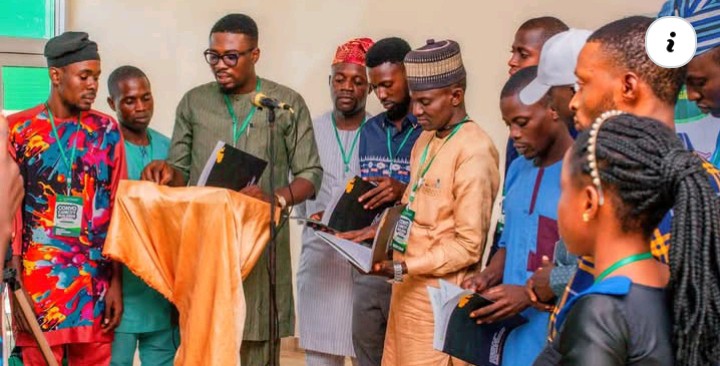The Coalition of Oyo North Youth Organizations (CONYO) has taken a significant step towards promoting good governance in Oyo North Senatorial District. Their recent Capacity Building Programme brought together youth leaders, civil society actors, and governance advocates to share ideas and build knowledge on effective local governance and advocacy strategies.
The program’s focus on empowering community-based organizations and promoting evidence-based advocacy is a step towards more inclusive and responsive governance in Oyo North Senatorial District.
The program’s success was made possible through the support of LEAP Africa, Nigeria Youth Futures Fund (NYFF), and MacArthur Foundation.
Speaking at the event, a Project Lead and Community Development Advocate,Samad A. Adewale highlighted the importance of empowering Community-Based Organizations (CBOs) in local governance. According to Adewale, empowered CBOs can drive positive change, enhance community engagement, and support strategic decision-making.
On his parts,Kazeem O. Oladejo, Project Co-Initiator and President of the Saki Youth Organization (SYO), delivered a powerful call to action, emphasizing the need for youth coalitions to unite and influence policy outcomes at the grassroots level with a view to leading a meaningful change, promote progress and prosperity .
The Capacity Building Programme featured a virtual session on “Roles of CBOs in Advancing Change at the Local Level” led by Kamal Afolabi, a leadership development consultant.
Mahfuz Alabidun’s session on “Role and Responsibilities of Local Government and Legislative Representation” covered essential topics, including constitutional roles and duties ; accountability and transparency ;Promotion of effective leadership and representation
The session empowered participants with knowledge to engage with government officials and hold them accountable through consultation and consolidation.
Speaking on the development, Ismail Opeyemi, Research and Development Consultant, emphasized the importance of evidence-based advocacy in his virtual presentation, highlighting the usage of research and data to inform advocacy efforts, crafting compelling messages to engage stakeholders and building relationships with key stakeholders to drive change
The program’s interactive Q&A segments fostered dynamic discussions, enabling participants to ask questions and gain deeper understanding

